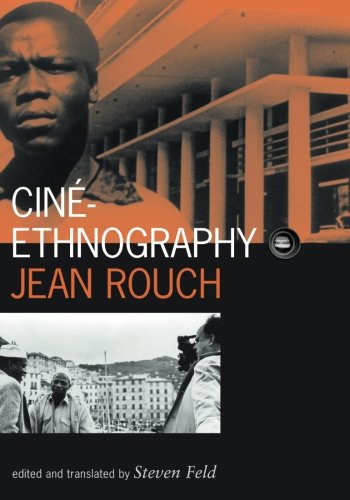Thomas Harding: The Video Activist Handbook, 2nd ed. (1998/2001)
Filed under book | Tags: · activism, community, documentary film, human rights, independent media, journalism, mass media, media activism, television, video

This second edition of the highly popular The Video Activist Handbook includes numerous examples of contemporary video activism from around the world. The first book to provide the basic skills and know-how required for beginning video activism, it also offers a wealth of ideas on video strategies to those with some prior experience. Whether you are involved in campaigning, non-violent direct action, or simply want to know how to make use of video as a political tool, this book is for you. • Covers the key topics in a step-by-step guide – from choosing and using the right equipment and planning when and where to shoot, to supplying to TV, making a campaign video and legal considerations • Combines clearly written and illustrated practical advice, backed up by a wealth of resources, with first-hand examples of successful video activism • Critically assesses the mainstream media agendas and offers a lively survey of the international video activist scene.
Foreword by Anita Roddick
Publisher Pluto Press, 2001
ISBN 0745317707, 9780745317700
Length 255 pages
More info (publisher)
More info (google books)
Larry Gross, John Stuart Katz, Jay Ruby (eds.): Image Ethics: The Moral Rights of Subjects in Photographs, Film, and Television (1991)
Filed under book | Tags: · cinema, docudrama, documentary film, film, mass media, photography, privacy, television

This pathbreaking collection of thirteen original essays examines the moral rights of the subjects of documentary film, photography, and television. Image makers–photographers and filmmakers–are coming under increasing criticism for presenting images of people that are considered intrusive and embarrassing to the subject. Portraying subjects in a “false light,” appropriating their images, and failing to secure “informed consent” are all practices that intensify the debate between advocates of the right to privacy and the public’s right to know. Discussing these questions from a variety of perspectives, the authors here explore such issues as informed consent, the “right” of individuals and minority groups to be represented fairly and accurately, the right of individuals to profit from their own image, and the peculiar moral obligations of minorities who image themselves and the producers of autobiographical documentaries. The book includes a series of provocative case studies on: the documentaries of Frederick Wiseman, particularly Titicut Follies ; British documentaries of the 1930s; the libel suit of General Westmoreland against CBS News; the film Witness and its portrayal of the Amish; the film The Gods Must be Crazy and its portrayal of the San people of southern Africa; and the treatment of Arabs and gays on television. The first book to explore the moral issues peculiar to the production of visual images, Image Ethics will interest a wide range of general readers and students and specialists in film and television production, photography, communications, media, and the social sciences.
Publisher Oxford University Press US, 1991
ISBN 0195067800, 9780195067804
400 pages
PDF (updated on 2012-7-14)
Comment (0)Jean Rouch: Ciné-Ethnography (2003)
Filed under book | Tags: · cinema, documentary film, ethnography, film

:One of the most influential figures in documentary and ethnographic filmmaking, Jean Rouch has made more than one hundred films in West Africa and France. In such acclaimed works as Jaguar, The Lion Hunters, and Cocorico, Monsieur Poulet, Rouch has explored racism, colonialism, African modernity, religious ritual, and music. He pioneered numerous film techniques and technologies, and in the process inspired generations of filmmakers, from New Wave directors, who emulated his cinema verite style, to today’s documentarians. Cine-Ethnography is a long-overdue English-language resource that collects Rouch’s key writings, interviews, and other materials that distill his thinking on filmmaking, ethnography, and his own career. Editor Steven Feld opens with a concise overview of Rouch’s career, highlighting the themes found throughout his work. In the four essays that follow, Rouch discusses the ethnographic film as a genre, the history of African cinema, his experiences of filmmaking among the Songhay,and the intertwined histories of French colonialism, anthropology, and cinema. And in four interviews, Rouch thoughtfully reflects on each of his films, as well as his artistic, intellectual, and political concerns. Cine-Ethnography also contains an annotated transcript of Chronicle of a Summer–one of Rouch’s most important works–along with commentary by the filmmakers, and concludes with a complete, annotated filmography and a bibliography. The most thorough resource on Rouch available in any language, Cine-Ethnography makes clear this remarkable and still vital filmmaker’s major role in the history of documentary cinema.”
Edited and translated by Steven Feld
Publisher University of Minnesota Press, 2003
ISBN 0816641048, 9780816641048
400 pages
Key words and phrases
Dogon, Jean Rouch, Sigui, Edgar Morin, Germaine Dieterlen, Marcel Griaule, Michel Brault, Damoure, Pale Fox, Marilou, African cinema, Niger River, Bandiagara, Dziga Vertov, Oumarou Ganda, direct cinema, Niamey, Songhay, Ghana, Treichville
PDF (updated on 2019-10-20)
Comments (2)
